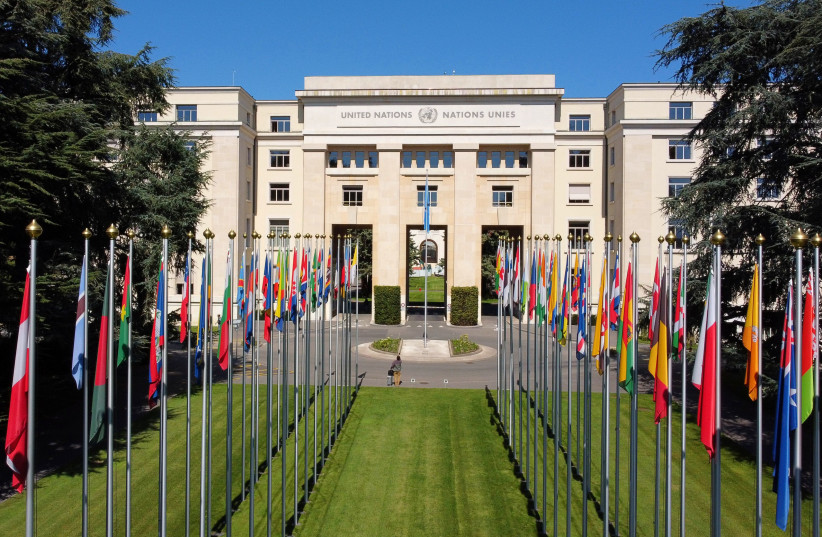The UN General Assembly elected the United States to the Geneva-based Human Rights Council (UNHRC) on Thursday, more than three years after the Trump administration quit the 47-member body over its chronic bias against Israel and a lack of reform.
The US, which was unopposed, received 168 votes in the secret ballot by the 193-member General Assembly. It begins a three-year term on January 1, pitting Washington against Beijing and Moscow, which began council terms this year. US President Joe Biden took office in January, pledging that human rights would be the center of his foreign policy and his administration has not shied away from criticizing China over Hong Kong, Xinjiang and Taiwan, while also calling out Russia.
Sen. Jim Risch (R-Idaho), ranking member of the Senate Foreign Relations Committee, said, “The United States should not be lending its legitimacy to a body that includes perpetrators of human rights abuses like China, Venezuela and Cuba. Additionally, the council continues to disproportionately spend the majority of its time and attention persecuting our ally Israel.
“The Biden administration will pat itself on the back for rejoining this flawed body. However, it will have done so without securing any necessary reforms, while failing to support human rights around the world,” Risch stated.
US Ambassador to the United Nations Linda Thomas-Greenfield said Washington would initially focus on “what we can accomplish in situations of dire need, such as in Afghanistan, Burma, China, Ethiopia, Syria and Yemen.

“Our goals are clear: stand with human rights defenders and speak out against violations and abuses of human rights,” she said in a statement.
Israel is set to lose three major supporters – Austria, the Czech Republic and Denmark – in January, but it gains Lithuania and the US.
Israel is the only country that is a permanent item on the UNHRC’s agenda, and the only country to be targeted with a permanent commission of inquiry into alleged war crimes, established earlier this year.
Hillel Neuer, director of UN Watch, said that following Thursday’s election, only 31.9% of the UNHRC’s members are free democracies.
“Elections were designed to weed out the world’s worst rights abusers. But oppressive regimes like China, Cuba, Libya, Russia and Eritrea routinely win elections, and the stamp of international legitimacy,” Neuer said.
Human Rights Council candidates are elected in geographical groups to ensure even representation. There were no competitive races on Thursday to elect 13 new members and reelect five members. Members cannot serve more than two consecutive terms.
The General Assembly also elected Kazakhstan, Gambia, Benin, Qatar, the United Arab Emirates, Malaysia, Paraguay, Honduras, Luxembourg, Finland, Montenegro and Lithuania, while reelecting Cameroon, Eritrea, Somalia, India and Argentina on Thursday. The United States received the second lowest number of votes, beating only Eritrea, which received 144 votes.
